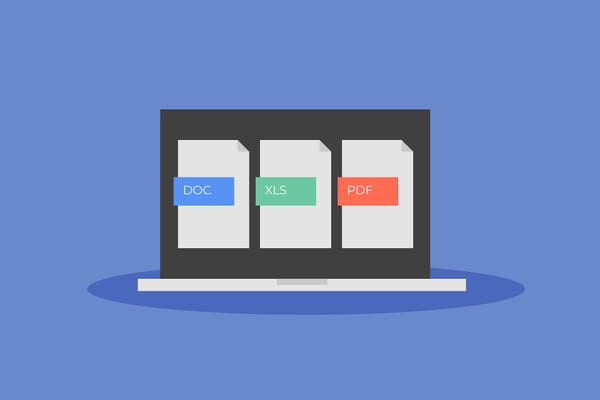WhatsApp vs. Telegram: Which Messaging App Is Safer for Your Business?

When choosing a messaging app for business, security and privacy should be top priorities. Many entrepreneurs and small business owners wonder: WhatsApp or Telegram—which is safer? Both platforms allow you to communicate with clients and team members, but their security features differ in ways that can impact your business.
Understanding how WhatsApp Business and Telegram work can help you decide which one is the right fit for your business communication needs.
WhatsApp vs. Telegram: Key Differences
At first glance, WhatsApp and Telegram offer similar features—text messaging, voice and video calls, and file sharing. However, the way they handle security, encryption, and multi-device access sets them apart.
User Experience
Both WhatsApp and Telegram are designed with user-friendliness in mind, ensuring a smooth and intuitive experience for all users. However, they do have different layouts and functionalities:
- WhatsApp places the calling tab at the top, making it easy for users who frequently make voice and video calls. Setting up group chats or messaging clients is straightforward.
- Telegram offers a more flexible messaging experience, allowing larger file sharing, animated stickers, and even broadcast channels for businesses.
Multi-Device Access
A major difference between the two apps is how they handle multiple devices:
- WhatsApp allows users to link up to four devices, maintaining end-to-end encryption (E2EE) across all devices.
- Telegram syncs messages across all devices in real-time, making it easy to switch between phones, tablets, and computers.
Encryption and Security
Security is a critical concern for businesses handling sensitive information. Both apps offer encryption, but in different ways:
- WhatsApp applies end-to-end encryption by default to all chats and calls. This means only the sender and recipient can read the messages, and even WhatsApp cannot access them.
- Telegram does not enable end-to-end encryption by default. Regular Telegram chats are stored on Telegram’s cloud servers, meaning Telegram technically has access to the messages.
What Are Telegram’s Secret Chats?
For businesses looking for extra privacy, Telegram’s Secret Chats offer advanced security features, including:
- End-to-end encryption, ensuring only the sender and recipient can read messages.
- Messages stored only on devices, not on Telegram’s servers.
- Screenshot notifications, alerting users if the recipient takes a screenshot.
- Message self-destruction, allowing users to set a timer for messages to disappear.
- No message forwarding, preventing content from being shared with others.
However, Secret Chats do not work on multiple devices and are lost if you log out or switch devices.
WhatsApp vs. Telegram: Pros and Cons
To help you decide, here’s a quick comparison:
|
Feature |
WhatsApp Business |
Telegram |
|
End-to-End
Encryption |
Default
for all messages |
Only
in Secret Chats |
|
Multi-Device
Support |
Up
to 4 devices |
Unlimited
devices |
|
Cloud
Backup |
No cloud storage (You can back up your WhatsApp chat history using your Google Account) |
Messages
stored in Telegram cloud |
|
Secret
Chats (Self-Destruct Messages, Screenshot Alerts, etc.) |
No |
Yes |
|
File
Sharing |
Up
to 2GB |
Up
to 2GB (or unlimited with premium) |
|
Compliance-Friendly
for Regulated Industries? |
No |
No |
Which Messaging App Works Best for Your Business?
WhatsApp is better for businesses that:
- Want a secure but simple messaging app with automatic encryption.
- Have a small team and don’t need to sync chats across many devices.
- Need to connect with customers easily (since WhatsApp is widely used).
Related: The 7 most common WhatsApp scams and how to avoid them
Telegram is better for businesses that:
- Want greater control over privacy with self-destructing messages.
- Need to share large files frequently.
- Operate across multiple devices and want instant syncing.
Related: 8 Telegram scams. How not to get scammed
WhatsApp vs. Telegram: Are They Business-Compliant? It depends.
For companies in finance, law, healthcare, and accounting, communication compliance is a critical requirement. Regulations in these industries, such as the SEC (Securities and Exchange Commission) and FCA (Financial Conduct Authority), demand that businesses retain, monitor, and securely store client interactions to ensure transparency and legal oversight.
Neither WhatsApp nor Telegram fully meets these compliance requirements because both prioritize privacy over regulatory monitoring. As a result, they are often classified as “off-channel” communication tools in regulated industries, meaning they lack the built-in oversight and archiving features needed for compliance.
WhatsApp: All messages are end-to-end encrypted by default, meaning even WhatsApp cannot access them. While this enhances privacy, it also means businesses cannot monitor, archive, or retrieve chat records for compliance. However, WhatsApp Business API (a separate product designed for enterprises) offers some compliance-friendly features, including third-party integrations for message storage and cloud-based backups.
Telegram: Regular chats are stored on Telegram’s servers, but they are not end-to-end encrypted by default. While this allows for message retrieval, it also introduces potential privacy concerns. Secret Chats, on the other hand, offer full encryption and self-destructing messages, but they cannot be backed up or monitored, making them unsuitable for businesses that need to retain communication records.
Since neither WhatsApp nor Telegram is considered fully compliant, companies from these industries should consider alternative communication solutions such as Microsoft Teams, Slack (Enterprise Grid), Signal for Business, Symphony, Wire for Business, and Cisco Webex Teams.
Data Privacy and GDPR Considerations
Both WhatsApp and Telegram provide privacy settings that can help businesses comply with GDPR (General Data Protection Regulation), but there are key limitations:
WhatsApp: Users can download their data and manage some privacy settings, but businesses must still ensure proper handling of customer data, storage, and processing to comply with GDPR.
Telegram: Offers greater control over privacy with Secret Chats and self-destructing messages, but these features can conflict with GDPR’s data retention requirements for businesses needing to keep communication records.
Related: How to Secure Information (Yours and Your Clients') on WhatsApp Business
Best Practices for Safe Business Communication on Messaging Apps
Regardless of which app you choose, here are best practices to keep your business communication secure:
- Enable Two-Factor Authentication (2FA): Protect your account from unauthorized access.
- Avoid Sharing Sensitive Data in Regular Chats: Even with encryption, assume messages could be exposed if a device is compromised.
- Regularly Review Linked Devices (WhatsApp) and Active Sessions (Telegram): Ensure no unauthorized logins.
- Train Employees on Messaging Security: Teach them how to avoid phishing links and unknown file downloads.
- Use Bitdefender Ultimate Small Business Security: Protect your business devices from malware, phishing, and scam attempts that target messaging apps. Bitdefender provides advanced threat detection, real-time scam protection, and a secure VPN to keep business communications safe from cyber threats.
Check out our plans for small businesses.
FAQs
Which is safer for business communication, WhatsApp or Telegram?
Both WhatsApp and Telegram offer security features, but they differ in how they protect messages. WhatsApp provides end-to-end encryption by default for all chats and calls, ensuring that only the sender and recipient can read messages. Telegram only offers end-to-end encryption in Secret Chats, while regular chats are stored on Telegram's cloud servers. For businesses prioritizing privacy and automatic encryption, WhatsApp is generally the safer option.
Is WhatsApp or Telegram GDPR-compliant for business use?
Neither WhatsApp nor Telegram fully meets GDPR compliance requirements for business communication. WhatsApp allows data downloads and encryption, but it doesn’t offer built-in message retention for compliance. Telegram provides more privacy control through Secret Chats and self-destructing messages, but these features may conflict with GDPR rules on data retention. Businesses needing full GDPR compliance should consider enterprise messaging tools with regulatory controls.
Can I use WhatsApp or Telegram for secure business communication?
While both apps offer encryption, they are not designed for handling highly sensitive business communication, such as legal discussions or confidential client data. WhatsApp Business API provides some security enhancements, but it lacks built-in compliance features for industries with strict regulations. Telegram’s regular chats are cloud-based, making them less secure than end-to-end encrypted messaging apps. Businesses dealing with sensitive data should consider dedicated business communication platforms with compliance-friendly security measures.
tags
Author
Cristina is a freelance writer and a mother of two living in Denmark. Her 15 years experience in communication includes developing content for tv, online, mobile apps, and a chatbot.
View all postsRight now Top posts
How to Protect Your WhatsApp from Hackers and Scammers – 8 Key Settings and Best Practices
April 03, 2025
Outpacing Cyberthreats: Bitdefender Together with Scuderia Ferrari HP in 2025
March 12, 2025
Streamjacking Scams On YouTube Leverage CS2 Pro Player Championships to Defraud Gamers
February 20, 2025
How to Identify and Protect Yourself from Gaming Laptop Scams
February 11, 2025
FOLLOW US ON SOCIAL MEDIA
You might also like
Bookmarks







